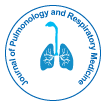Наша группа организует более 3000 глобальных конференций Ежегодные мероприятия в США, Европе и США. Азия при поддержке еще 1000 научных обществ и публикует более 700 Открытого доступа Журналы, в которых представлены более 50 000 выдающихся деятелей, авторитетных учёных, входящих в редколлегии.
Журналы открытого доступа набирают больше читателей и цитируемости
700 журналов и 15 000 000 читателей Каждый журнал получает более 25 000 читателей
Индексировано в
- ICMJE
Полезные ссылки
Журналы открытого доступа
Поделиться этой страницей
Абстрактный
Cytokine Storm Goes Hand In Hand with Prolonged Fever in SARS COVID ? 19
Vijay Bakhtar*
Background: Clinical intervention in patients with SARS has demonstrated upregulation of cytokine production in patients with prolonged fever. Such an association between fever & cytokine storm is studied in the present research which is an hospital-based case-control study of COVID-19 patients. To the best of our knowledge, the present study is the first study on Indian population which highlights the link between prolonged fever, lymphocyte count and cytokine profile in patients with COVID-19 disease. Methods: We conducted a hospital-based case–control study of patients admitted for COVID-19 with prolonged fever and short duration of fever with a positive SARS-CoV-2 reverse transcriptase polymerase chain reaction (RTPCR). All the patients underwent investigations which includes chest X-ray (CXR), Complete Blood Count (CBC), Renal and liver panel, C- reactive protein (CRP), lactate dehydrogenase (LDH), Interleukin -6 (IL-6) and Ferritin, as a part of their COVID-19 protocol clinical laboratory findings at regular intervals till discharge. Conclusion: The study reported that prolonged fever i.e., fever > 7 days from beginning of illness was associated with increased risk of cytokine storm from COVID-19 than patients with short duration of fever. There was also a marked reduction in lymphocyte count with increased levels of inflammatory markers and fever which is again considered an indicator of poor prognosis. The study concludes that prolonged fever should be considered as one of the earliest markers for predisposing the patient to the cytokine storm. These early signs if diagnosed correctly right at the inception of complications the further progression of cytokine storm could be avoided, which can minimize the mortality and foster the chances of patient’s recovery from this deadly disease.
Журналы по темам
- Биохимия
- Ветеринары
- Генетика и молекулярная биология
- Геология и науки о Земле
- Еда и питание
- Иммунология и микробиология
- Инженерное дело
- Клинические науки
- Материаловедение
- медицинские науки
- Науки об окружающей среде
- Общая наука
- Сельское хозяйство и аквакультура
- Социальные и политические науки
- Уход и здравоохранение
- Фармацевтические науки
- Физика
- Химия

 English
English  Spanish
Spanish  Chinese
Chinese  German
German  French
French  Japanese
Japanese  Portuguese
Portuguese  Hindi
Hindi